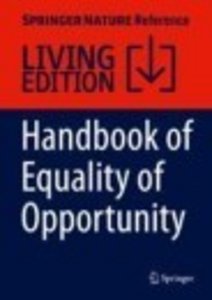Equality of Opportunity for Health: Personal Responsibility and Distributive Justice
New publication by Andreas Albertsen and Lydia Tsiakiri in: Sardoč, M. (eds) Handbook of Equality of Opportunity. Springer, Cham. In this chapter Andreas Albertsen and Lydia Tsiakiri provides an overview over the philosophical debate on personal responsibility, luck egalitarianism and health.
https://doi.org/10.1007/978-3-319-52269-2_86-1
Abstract
The world has experienced a shift in the prevalent pattern of disease, with noncommunicable diseases now representing more than half of the leading causes of death. Costs related to such diseases put a considerable strain on already challenged healthcare budgets. This brings to the fore questions concerning the efficient and fair allocation of health resources. This chapter discusses equality of opportunity for health adopting a luck egalitarian approach. Luck egalitarianism is a responsibility-sensitive theory of distributive justice. It includes both a commitment to eradicating unchosen circumstances and respecting voluntary choices and argues that distributions are unjust, if and only if some people are worse off than others through no fault of their own. First, the chapter elaborates on the reasons why a responsibility-sensitive approach applies in the discussion of equality of opportunity for health. Next, the core of luck egalitarianism and key disagreements in the literature are presented. The theory is then discussed in the context of health, and central facets of this approach are clarified: what is the role of responsibility, how is this perceived, and do other aspects of a person’s life or supplementary values matter in this discussion? The chapter moves forward to critically discuss critiques already raised against this responsibility-sensitive theory of distributive justice, like the harshness and the shameful intrusiveness objection, and finally to sketch out a novel critique: the discrimination objection.

